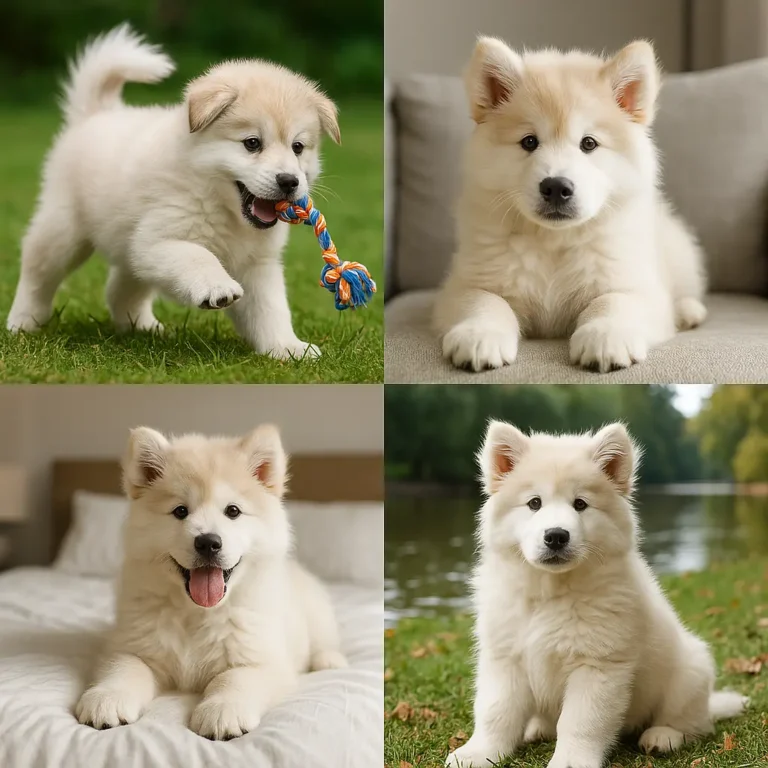French Mastiff
The Mighty French Mastiff
The French Mastiff, also known as the Dogue de Bordeaux, is a large and powerful breed originally hailing from France. Renowned for its muscular build, this Mastiff dog possesses an exceptional sense of loyalty and protection, making it an excellent guard dog. Despite its intimidating size, the French Mastiff is a gentle giant, known for its affectionate nature toward family members. They are particularly known for their intelligence and protective instincts, which make them great companions for experienced dog owners. Whether as a family pet or a guardian, the French Mastiff is known for being both calm and confident. Their short coat, usually in shades of fawn, adds to their dignified appearance. As they grow, these dogs maintain a calm demeanor, making them one of the most reliable and cherished breeds for those who can provide the attention they deserve.

Puppy Care: Raising a French Mastiff
Raising a French Mastiff puppy requires dedication and patience. These puppies are affectionate and intelligent but also have a strong-willed nature that needs guidance. Socialization is crucial at an early age to ensure they are well-adjusted around other pets and children. Begin obedience training early, as they are large dogs and can be a challenge if not trained properly. Providing a balanced diet and regular exercise will support their growth, as they are prone to weight gain. The French Mastiff’s loyal personality makes them excellent companions, but consistent care will ensure they become calm, friendly adults.
Breed Traits
The French Mastiff is known for its large size, muscular frame, and distinctive fawn-colored coat. With a gentle and protective nature, they are loyal, confident, and excellent family dogs.
The average lifespan of a French Mastiff is between 8 to 10 years. With proper care, including regular vet check-ups and a healthy diet, they can live a long, fulfilling life.
The French Mastiff stands between 24 to 27 inches tall at the shoulder. Males tend to be on the taller end, while females are usually slightly smaller but still impressive in size.
This breed is hefty, with males weighing between 110 to 145 pounds, while females weigh slightly less at 99 to 120 pounds. Their solid muscle mass contributes to their significant weight.
The French Mastiff thrives in homes with large yards where they can roam freely. Though they can adapt to apartment life with proper exercise, they prefer more space due to their size.
Breed Characteristics
French Mastiffs are known for their impressive strength, loyalty, and protective nature. They have a calm temperament, making them excellent companions, but they require firm training due to their independent streak.
A great family dog, the French Mastiff is gentle and protective. They are good with children and enjoy being part of the family. Early socialization ensures they get along well with everyone.
Physically, the French Mastiff has a stocky and muscular build with a broad head and deep-set eyes. Their fawn-colored coat, short and dense, highlights their strong, powerful body structure.
Though independent, the French Mastiff is generally friendly and enjoys companionship. Socialization at an early age is important to ensure they are well-mannered around other pets and strangers, fostering a friendly nature.
Known for their calm yet protective demeanor, French Mastiffs are loyal and intelligent. They are natural guardians of their families but also affectionate, often forming strong bonds with their owners.
Training a French Mastiff requires patience and consistency
Training a French Mastiff requires patience and consistency. Due to their strong-willed nature, they respond best to positive reinforcement techniques. Early obedience training is essential, as they are large dogs that need structure. Socialization with other dogs, pets, and children should start as soon as possible to ensure they are well-behaved and balanced. Though they are intelligent, French Mastiffs can be stubborn, so it’s important to be firm and consistent without being harsh. This breed excels with experienced owners who can guide them without becoming frustrated. With proper training, they make excellent companions.
French Mastiff History & Facts
The French Mastiff, or Dogue de Bordeaux, has a long history in France, originally bred for guarding, hunting, and protecting estates. Their ancestors were used to protect livestock and even fight alongside soldiers. The breed's powerful build and keen instincts made it well-suited for these tasks. Over time, the French Mastiff transitioned into a family companion while retaining its protective nature. Despite its intimidating size, the breed has been cherished for its gentle temperament. The French Mastiff gained international recognition in the 1990s, becoming a popular breed for both guardianship and companionship.
French Mastiffs are affectionate and gentle, often forming strong bonds with their families and children.
They are large dogs, with males weighing up to 145 pounds and females slightly smaller.
Originally bred as protectors, they retain a strong instinct to guard their family and property.
Their short, fawn-colored coat is easy to care for, requiring only occasional brushing.
French Mastiffs are prone to certain health issues, including hip dysplasia and heart conditions, requiring regular vet check-ups.
Mastiff Dog Popular Mix Breeds
Mastiffs are often crossed with other breeds to combine their strength, loyalty, and gentle temperament with the traits of other popular dogs. The Labrador Mastiff Mix blends the French Mastiff’s protective nature with the friendly personality of the Labrador. The Boxer Mastiff Mix brings energy and playfulness to the Mastiff’s calm demeanor. Similarly, the Pitbull Mastiff Mix combines the Mastiff’s guarding instincts with the Pitbull’s loyalty and athleticism. These mixes make excellent family companions with varied temperaments, but all retain the Mastiff’s loyal and protective traits.
🍖 Best Diet Plan for a Healthy French Mastiff
The French Mastiff requires a protein-rich diet to maintain its muscular body and active lifestyle. A balanced meal should include lean meats, fish, healthy fats, and fiber-rich vegetables to support muscle growth and digestion. Since this breed is prone to joint issues, adding glucosamine and omega-3 supplements can help support joint health. Meals should be divided into two or three portions per day to reduce the risk of bloating, a common concern for large breeds. Avoid artificial fillers, excessive carbs, and processed foods, which can lead to obesity and digestive problems. Always provide fresh water for hydration.
🐕 Breed Behaviour: Calm, Loyal, and Protective
The French Mastiff is known for its calm demeanor and strong protective instincts. Despite its imposing size, it is a gentle giant that is deeply loyal to its family. This breed is affectionate with family members and forms strong bonds, making it an ideal companion and guard dog.
Alertness
Protectiveness
Prey drive
Aggressiveness
Barking level
Trainability
Mental stimulation needs
Intelligence
🐶 French Dog Cross: A Popular and Majestic Hybrid Breed
The French Mastiff is a highly popular and majestic breed, known for its strength, loyalty, and protective instincts. This breed excels in guarding, protection, and companionship roles, making it a reliable and loving guardian. Despite its large size, it is affectionate and gentle with family members, especially children. With early training and socialization, the French Mastiff becomes a well-behaved and obedient pet. Its calm demeanor combined with its intelligence and protective nature makes it an excellent choice for families seeking a gentle giant who will watch over their home with unwavering loyalty.
✂️ Grooming Needs: Maintaining a Healthy Coat and Skin
The French Mastiff has a short, dense coat, requiring minimal grooming. Weekly brushing helps reduce shedding and keeps the coat clean and healthy. Bathing every 6-8 weeks with a gentle, dog-friendly shampoo maintains its skin health and prevents irritation. Routine ear cleaning, nail trimming, and dental care are essential for overall health. This breed can be prone to dry skin, so using moisturizing shampoos can help maintain coat hydration. A consistent grooming routine ensures the dog remains comfortable, healthy, and looking its best, while also reducing shedding in the home.
🔍 Physical Attributes: A Majestic and Powerful Presence
The French Mastiff is a massive breed with a muscular frame, broad chest, and strong legs. Their large head and intelligent eyes exude confidence, while their expressive face conveys affection and gentleness. Their imposing size makes them excellent guardians, yet they remain loving companions.
Breed Size
Colours
Coat
Drooling
Snoring
Exercise Needs
Grooming Needs
Aggressiveness
🏥 Health: Common Issues & Preventive Care
The French Mastiff is prone to hip and elbow dysplasia, a condition common in large breeds. Bloat (gastric torsion) is another concern, requiring controlled feeding habits to prevent the stomach from twisting. Other common health issues include heart disease, obesity, and joint problems due to their large size. Regular vet checkups, weight management, and joint supplements help maintain their health. Their lifespan typically ranges from 8-12 years, depending on diet, exercise, and genetics. Providing structured training, good nutrition, and regular vet visits is key to extending their lifespan and ensuring a healthy life.
🏆 Dog Breed Size: A Majestic Giant with a Gentle Heart
The French Mastiff is a giant breed, standing 24-27 inches tall and weighing 90-140 pounds. Their massive frame is combined with a gentle and calm temperament, making them ideal family pets and loyal guardians. Due to their size and strength, they require early obedience training to ensure they are well-behaved and manageable. Space is essential as they thrive in homes with large yards where they can roam freely. Despite their large size, French Mastiffs are affectionate and gentle with family members. They require moderate exercise and benefit from a balanced diet to manage their health.
FAQs About the French Mastiff
❓ Is the French Mastiff a good family dog?
❓ How big does a French Mastiff get?
❓ Are French Mastiff puppies easy to train?
❓ Do French Mastiffs get along with other pets?
❓ How much exercise does a French Mastiff need?
❓ What is the lifespan of a French Mastiff?
❓ Do they shed a lot?
❓ Are French Mastiffs good guard dogs?
🐶 Dog Life: A Loving and Protective Companion
The French Mastiff is a gentle giant that thrives in a family environment. They are affectionate and form strong bonds with their owners. Their protective nature makes them excellent guard dogs, but they are also calm and patient with children. They need regular exercise to stay fit, but their moderate activity level makes them ideal for families who enjoy a relaxed lifestyle. Providing them with consistent training, socialization, and mental stimulation is essential to help them grow into well-mannered, confident dogs. Their devotion and loyalty ensure they will be a loving companion for many years.
The French Mastiff is a giant breed with a gentle, loving temperament that makes them an ideal family dog. They require ample space, early training, and consistent exercise to thrive. Due to their large size, they are best suited for families with spacious yards. With the right amount of training, early socialization, and leadership, they can be a devoted companion and a protective guard dog. Their affectionate nature and calm demeanor make them great pets, while their strength and loyalty make them excellent protectors. With the right care, they will be loving, well-behaved companions for years.



























